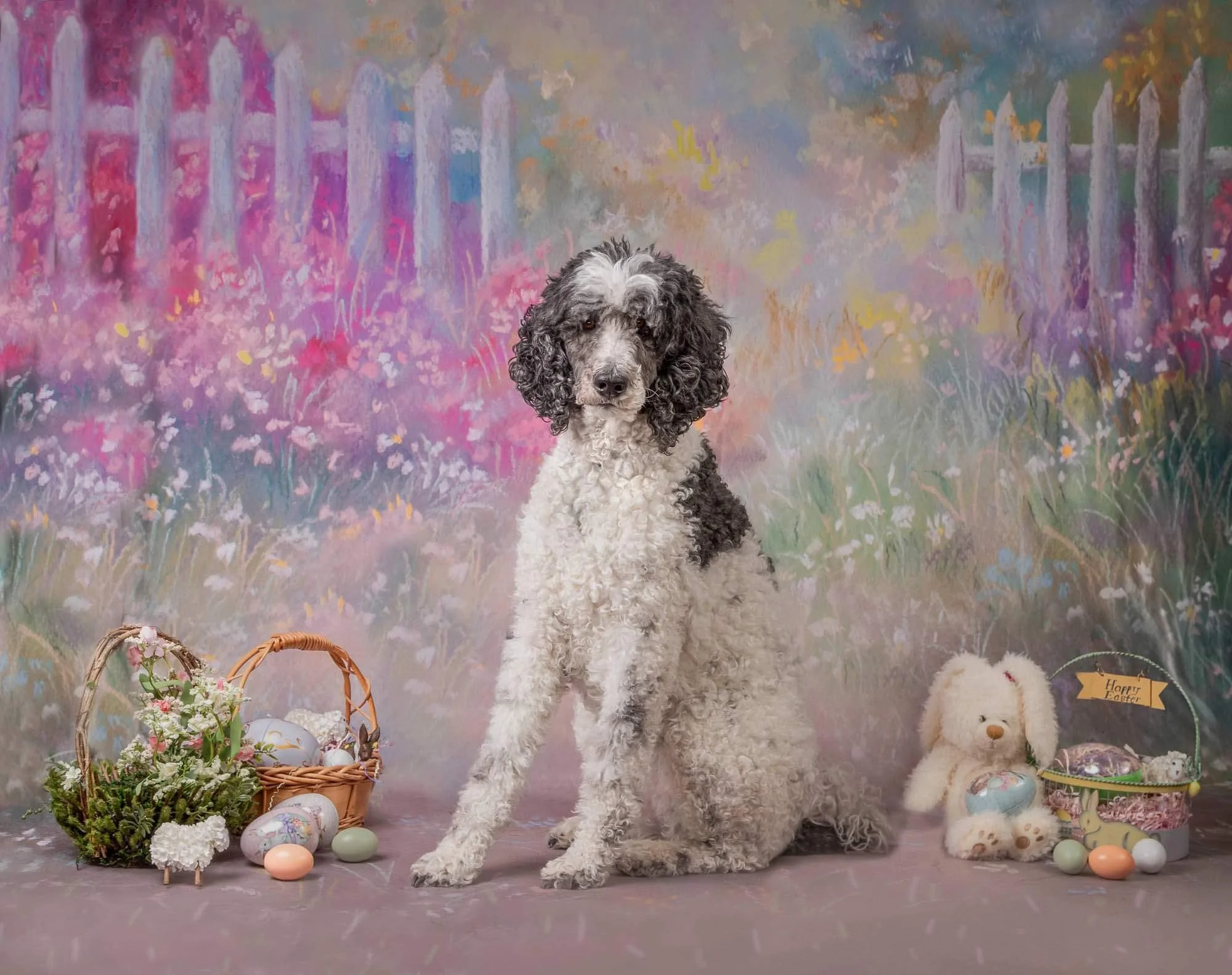Beware the Bunny: Easter Treats and Activities That Could Harm Your Pup
As Easter approaches, many families prepare to celebrate with festive treats, activities, and gatherings. While it's a joyous time for humans, it can also pose hidden dangers for our beloved canine companions. Many of the traditional treats and activities associated with Easter can be harmful or even life-threatening to dogs. Here are some some common Easter treats and activities that could spell trouble for your pup, as well as some tips on how to keep them safe during the holiday season.
1.Chocolate Delights
Easter and chocolate go hand in hand, but for dogs, it's a recipe for disaster. Chocolate contains theobromine and caffeine, which are toxic to dogs and can cause vomiting, diarrhea, rapid breathing, increased heart rate, seizures, and even death. Dark chocolate and baking chocolate are particularly dangerous due to their higher cocoa content. Keep all chocolate treats, including Easter eggs, bunnies, and candies, out of reach of your dog, and educate family members and guests about the dangers of sharing chocolate with pets. One Easter years ago my dog at the time, Oliver, jumped up and pulled an Easter basket off the kitchen counter while we were at church. I was terrified, but after consulting the internet and consulting a vet, we found out he thankfully hadn’t consumed enough to cause anything more than digestive problems, but I was much more careful after that scare.
2. Xylitol Sweetened Treats
Many Easter candies, gums, and baked goods are sweetened with xylitol, a sugar substitute that can be deadly to dogs. Xylitol causes a rapid release of insulin in dogs, leading to hypoglycemia (low blood sugar) and liver failure. Even small amounts of xylitol can be toxic, so be vigilant about checking ingredient labels and keeping xylitol-containing products safely stored away from your dog. The best practice is not to even bring anything with Xylitol into your home, but you may also have to be careful if the children in your neighborhood have outdoors Easter egg hunts because little ones tend to drop candy.
3. Easter Lilies
Easter lilies are a popular symbol of the holiday, but they pose a severe threat to dogs if ingested. All parts of the Easter lily plant, including the petals, leaves, stems, and pollen, are highly toxic to dogs and can cause kidney failure. Even a small nibble or exposure to pollen can lead to serious health complications. If you have Easter lilies in your home, keep them out of reach of your dog or opt for pet-safe alternatives like Easter cacti or orchids.
4. Egg-citing Egg Hunts
Easter egg hunts are a beloved tradition for many families, but they can also present dangers for dogs if not carefully supervised. Plastic eggs filled with treats or small toys may seem harmless, but if ingested, they can cause intestinal blockages or choking hazards. Keep a close eye on your dog during egg hunts and promptly pick up any stray eggs to prevent accidental ingestion. Consider using larger, pet-safe eggs or skipping the egg hunt altogether in favor of other dog-friendly activities.
5. Fatty Foods and Table Scraps
Easter feasts often include rich, fatty foods like ham, lamb, and gravy, which can wreak havoc on your dog's digestive system. Foods high in fat can cause pancreatitis, a painful and potentially life-threatening inflammation of the pancreas. Avoid feeding your dog table scraps or fatty foods, and be sure to educate guests about the importance of not sharing human food with pets. Instead, offer your pup pet-safe treats or a small portion of their regular dog food as a special treat.
6. Alcohol and Adult Beverages
Easter celebrations may sometimes include alcoholic beverages like wine, beer, or cocktails, but these can be toxic to dogs if ingested. Alcohol poisoning can cause vomiting, diarrhea, difficulty breathing, tremors, seizures, coma, and death in dogs. Keep all alcoholic beverages securely stored out of reach of your dog, and be mindful of spilled drinks or unattended glasses during gatherings. If your dog ingests alcohol accidentally, seek veterinary care immediately.
7. Plastic Decorations and Easter Grass
Easter decorations like plastic eggs, foil wrappers, and Easter grass may seem harmless, but they can pose serious risks to dogs if ingested. Sharp edges or small pieces of plastic can cause intestinal blockages or perforations, while Easter grass can become tangled in your dog's intestines, leading to serious health complications. dogs can be attracted to these things if sweet things are in the grass or have been and the dog can still smell them. Keep decorations securely stored away from your dog, and promptly clean up any stray pieces or decorations that may pose a hazard.
While Easter is a time of joy and celebration, it's essential to be mindful of the potential dangers that this holiday can pose to our furry friends. By being aware of common Easter treats and activities that could harm your dog and taking proactive measures to keep them safe, you can ensure that the holiday season is enjoyable and worry-free for both you and your canine companion. From avoiding chocolate and xylitol to keeping Easter decorations out of reach, a little extra caution and vigilance can go a long way in protecting your pup's health and well-being during this festive time of year.

